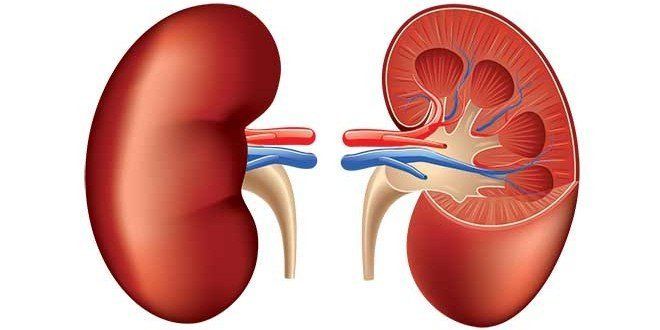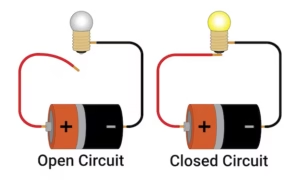Kidney stones are small, hard deposits that form in the kidneys and can cause excruciating pain when they pass through the urinary tract. If you’ve ever experienced one, you know the discomfort can be unbearable. But what exactly are kidney stones, and why do they develop? Let’s break it down.
What Are Kidney Stones?
Kidney stones are crystalline mineral deposits that develop within the kidneys. They can vary in size, from tiny grains of sand to stones large enough to obstruct the flow of urine. While small stones may pass unnoticed, larger ones often require medical intervention.
Types of Kidney Stones
There are several different types of kidney stones, each formed from different substances in the urine. Understanding the type you have can help determine the underlying cause and guide treatment.
Calcium Stones
Calcium stones are the most common type of kidney stone, accounting for about 80% of cases. They typically form when there is too much calcium in the urine, which combines with oxalate or phosphate to create hard deposits.
Uric Acid Stones
Uric acid stones develop when there is an excess of uric acid in the urine. This is more common in people who consume a high-protein diet or who suffer from conditions like gout.
Struvite Stones
Struvite stones are less common and usually form in response to an infection in the urinary tract. They can grow rapidly and become quite large, sometimes causing urinary blockages.
Cystine Stones
Cystine stones are rare and occur in people with a genetic condition called cystinuria, where excess cystine, an amino acid, leaks into the urine and forms stones.
Common Causes of Kidney Stones
Kidney stones can form for a variety of reasons. Let’s dive into some of the most common causes.
Dehydration
One of the leading causes of kidney stones is dehydration. When you don’t drink enough water, your urine becomes more concentrated with minerals, which can crystalize and form stones.
Diet and Nutrition
Your diet plays a huge role in stone formation. A diet high in sodium, protein, or oxalates (found in foods like spinach and nuts) can increase your risk. On the other hand, consuming more water and foods that are low in salt and animal protein can help reduce the likelihood of stones forming.
Family History and Genetics
If your family members have had kidney stones, you are more likely to develop them. Some people are genetically predisposed to conditions that increase stone formation, such as cystinuria or hypercalciuria (excess calcium in urine).
Medical Conditions and Medications
Certain medical conditions, such as hyperparathyroidism or inflammatory bowel diseases, can increase the risk of kidney stones. Additionally, medications like diuretics and calcium-based antacids can sometimes contribute to stone formation.
How Do Kidney Stones Form?
The process of kidney stone formation is both fascinating and complex. Here’s a breakdown of how these tiny, painful rocks form.
The Role of Urine in Stone Formation
Normally, urine contains substances that prevent crystals from forming. However, when your urine becomes supersaturated with certain minerals, like calcium or uric acid, crystals can start to form.
Stages of Stone Development
Stone development typically starts as tiny crystals. These crystals can grow larger over time, especially if urine flow is slow or you are dehydrated. Eventually, they can turn into stones large enough to cause symptoms.
Symptoms of Kidney Stones
Kidney stones can cause a range of symptoms, from mild discomfort to severe pain.
Early Warning Signs
You might first notice sharp, cramping pain in your back or side. This pain can shift to the lower abdomen and groin as the stone moves through your urinary tract. Other symptoms include nausea, vomiting, and painful urination.
When to See a Doctor
If you experience severe pain, blood in your urine, or have trouble passing urine, it’s important to seek medical attention. These could be signs of a kidney stone or another serious condition.
How Are Kidney Stones Diagnosed?
When it comes to diagnosing kidney stones, doctors use a combination of tests to determine the size, type, and location of the stone.
Imaging Tests
Imaging tests like CT scans, ultrasounds, or X-rays can help locate the stone and assess its size. A CT scan is often the most accurate method but may not always be necessary for smaller stones.
Urine and Blood Tests
Urine and blood tests are used to detect the substances that might be causing the stones. These tests can help doctors figure out the stone type and guide treatment.
Treatment Options for Kidney Stones
Treatment for kidney stones depends on the size and type of stone, as well as your overall health. Here are the main options available.
Non-Surgical Treatments
Pain Management
For smaller stones, pain management and hydration are often the first line of treatment. Drinking plenty of water can help flush the stone out of your system.
Medical Therapy
Certain medications can help dissolve or prevent the formation of specific types of stones. For example, potassium citrate can help prevent calcium oxalate stones.
Surgical Options
If a stone is too large to pass naturally, or if it causes severe symptoms, surgery may be necessary.
Shock Wave Lithotripsy (SWL)
SWL uses sound waves to break large stones into smaller pieces, making it easier for them to pass through the urinary tract.
Ureteroscopy
In ureteroscopy, a thin tube with a camera is inserted into the urethra to locate and remove the stone.
Percutaneous Nephrolithotomy (PCNL)
PCNL is a more invasive procedure that involves making a small incision in the back to remove large or complex stones.
Preventing Kidney Stones
Preventing kidney stones is all about making lifestyle changes and managing any underlying medical conditions.
Hydration and Diet Changes
The best way to prevent kidney stones is to stay hydrated. Aim to drink at least 8-12 glasses of water per day. Additionally, reducing your intake of sodium and animal protein can help lower your risk.
Managing Medical Conditions
If you have a medical condition that puts you at risk for kidney stones, such as hyperparathyroidism, it’s important to manage it properly. Work with your doctor to monitor your health and adjust treatments as needed.
Medications for Prevention
In some cases, medications can help prevent stones from forming. These are typically prescribed if you’ve had recurring stones or have a medical condition that predisposes you to them.
Conclusion
Kidney stones are a painful but treatable condition. By understanding the causes, symptoms, and treatments available, you can take steps to prevent stones from forming or manage them effectively if they do occur. Simple lifestyle changes, like staying hydrated and adjusting your diet, can make a big difference. If you’re prone to kidney stones, work with your doctor to create a plan that keeps you stone-free and pain-free.



















